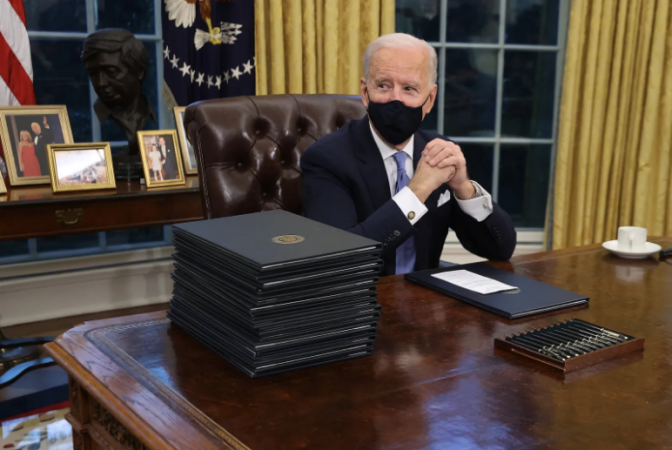
United States: US President Joe Biden will host Pacific island leaders at the White House in September, a senior US diplomat revealed on Saturday, sharpening his allure against the growing Chinese influence in the region.
Deputy Secretary of State Wendy Sherman, who was in Tonga, announced that at the end of the month, the leaders would be invited to Washington for a meeting and dinner.
Sherman declared that the gathering would be a historic opportunity for the United States and the Pacific Island nations to hear and hear each other. The action is part of a flurry of shuttle diplomacy by the US to bolster the Pacific alliance against an assertive Beijing.
In recent months, Washington has become more vocal and visible, and has announced the opening of several new diplomatic missions in the region.
Visiting officials include Secretary of State Antony Blinken and Vice President Kamala Harris, who recently delivered a landmark speech at the Pacific Islands Forum.
The Battle of Guadalcanal in World War II is being celebrated with many activities in the neighboring Solomon Islands on Saturday.
A re-ignited rivalry between Beijing and Washington on the South Pacific centered on the Solomon Islands. The Chinese secret security pact with the island nation signed in April has worried Western allies.
The deal, which critics worry about, could give China a military foothold in the South Pacific, likely a top priority during the US visit.
Solomon Islands Prime Minister Manasseh Sogaware has taken a number of decisions that reflect the authoritarian system of government of China.
Sogaware has threatened other media, taken steps to censor the public broadcaster, and repeatedly suggested delaying upcoming elections.
During a visit to Tonga, Sherman emphasized the potential local repercussions of China's recent decision to halt climate talks with the United States, brought on by Nancy Pelosi's visit to Taiwan.
Climate change is a potential threat to Tonga and we accept it. And it's incredibly disappointing that at the moment the world's biggest emitter, a nation that we need to join to stay below 1.5 degrees Celsius, has abandoned that conversation, Sherman said.
According to the terms of the 2015 Paris climate agreement, nations are trying to keep the rise in global temperature to 1.5 °C.
In a region where many nations are only a few feet above sea level and are already feeling the effects of climate change, rising sea levels are a major concern.
Amnesty's State Department, CIA link making report on Ukrainian military crimes